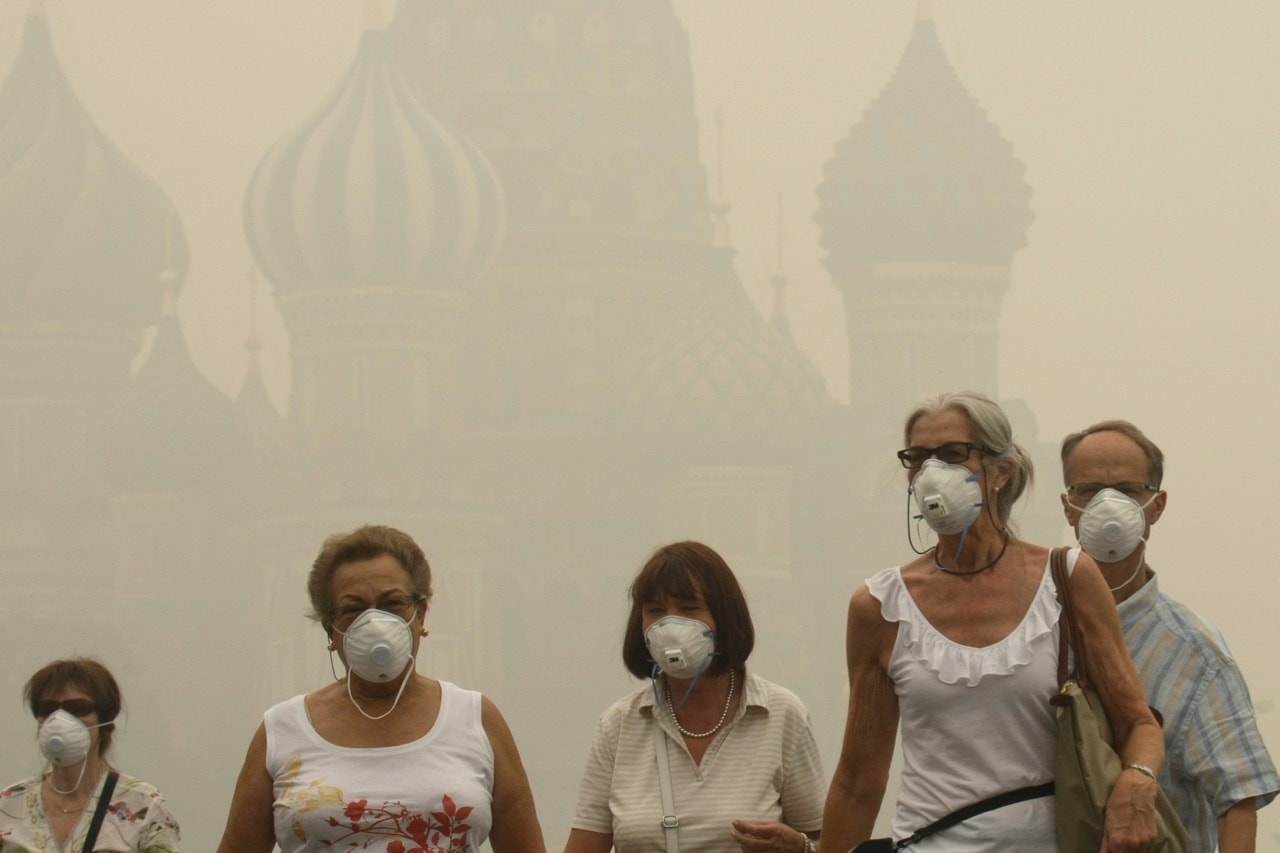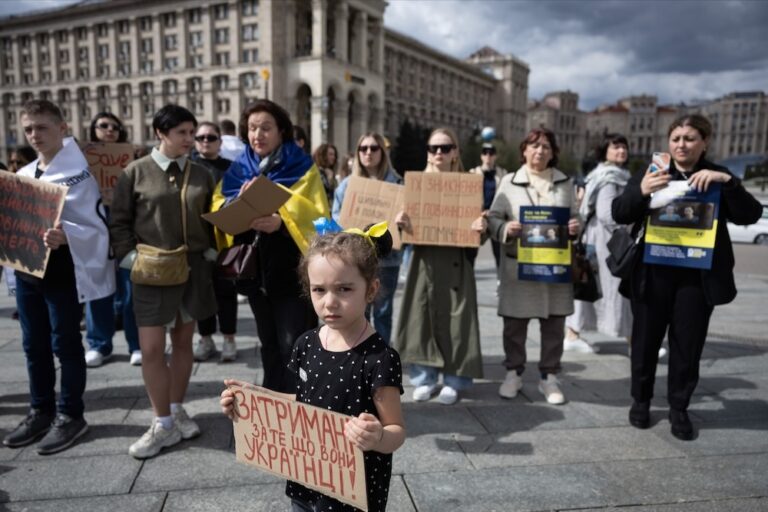Interviews with directors of current or defunct environmental organizations across Russia reveal that at least 14 environmental nongovernmental organizations have stopped work rather than continue to operate while labelled a "foreign agent."
This statement was originally published on hrw.org on 21 November 2017.
Russia’s “foreign agents” law, which entered into force on this date five years ago, has been used to end or curtail a broad range of important work to protect Russia’s natural environment, Human Rights Watch said today.
Interviews with directors of current or defunct environmental organizations across Russia reveal that at least 14 environmental nongovernmental organizations have stopped work rather than continue to operate while labelled a “foreign agent.” Authorities have used the law to eliminate or restrain groups advocating against state-sanctioned development projects, expressing concerns about proposed government policies, and petitioning authorities for the release of imprisoned environmental activists.
“Although 2017 is the ‘Year of Ecology’ in Russia, there’s been no letup in government efforts to suppress environmental movements,” said Richard Pearshouse, associate environment director at Human Rights Watch. “The Justice Ministry has used the ‘foreign agents’ registry to silence some of the country’s most effective, rigorous, and committed environmental groups.”
Russia’s “foreign agents” law requires organizations that accept any foreign funding, governmental or private, and engage in “political activity” to register as “foreign agents.” The law has been used to target a broad range of independent organizations that work on human rights, health, environmental issues, migrants, and refugees, as well as research organizations, groups that conduct public opinion polling, and groups that provide legal aid to victims of rights abuses or support people with HIV/AIDS or victims of Soviet repression.
In Russia, the term “foreign agent” connotes “spy” or “traitor.” Russia’s Justice Ministry has designated 158 groups as “foreign agents” under this law, including 29 environmental nongovernmental organizations.
These environmental organizations undertook a diverse range of work to protect the right to a healthy environment, including conducting environment impact assessments of new development projects, raising public awareness on environmental issues, campaigning against corruption in activities related to the environment, and providing legal advice to people affected by industrial and nuclear accidents.
Human Rights Watch interviewed directors or former directors of 18 environmental groups, of which 14 have either shut down or suspended all work rather than operate with a “foreign agent” stigma. Three have continued to work as “foreign agent” organizations. One gave up foreign funding, and eventually the designation was removed.
Some of those that have closed or ceased work have re-established themselves in a different form. But the total number closed may be greater, as 11 environmental groups either could not be reached or declined to be interviewed.
Those interviewed said that other impacts of the “foreign agent” designation have included fines, smear campaigns and threats against staff, termination or restriction of specific projects, and local authorities’ refusal to continue collaboration.
Though the law exempts “activities in the field of… protection of flora and fauna” from the definition of “political activity,” the interviews revealed a broad pattern of suppression of environmental organizations, with some particularly notable cases. One group was designated a “foreign agent” following its successful legal fight against corruption among local authorities that underpinned a series of licenses to log protected forests.
Another was deemed to have engaged in “political activity” by not providing a submission to the local council on an amendment to the state’s administrative code. In another case, after the organization’s “foreign agent” designation, a state-owned broadcaster aired a program showing the director’s residence, describing it as a site of “industrial espionage.” The director and her family fled Russia following a death threat.
In May 2014, Russia’s parliament amended the “foreign agents” law to authorize the Justice Ministry to register groups as “foreign agents” without their consent. In May 2016, parliament adopted another set of amendments, building up the originally vague definition of “political activity” to include any attempt by an independent group to influence public policy or public opinion in any area.
On November 15, 2017, Russia’s lower house of parliament adopted amendments that authorize the government to demand foreign media organizations to register as “foreign agents,” and comply with the requirements set out in the “foreign agents” law for NGOs. The draft has been sent for approval to the Federation Council, Russia’s upper house of parliament. Although it is not clear how the amendments will be implemented, they seem intended to allow for selective, political enforcement, Human Rights Watch said.
Courts have imposed hefty administrative fines on organizations and/or their directors for alleged failure to comply with the “foreign agents” law. In addition, under the criminal law, “malicious evasion” of legal requirements in this law can result in fines and up to two years in prison.
In its opinion on Russia’s “foreign agents” law, the Council of Europe’s Venice Commission – the Council of Europe’s advisory body on constitutional matters – specifically urged the Russian Federation to ensure that the term “political activity” is not used to target human rights defenders nor applied to nongovernmental organizations based on their political opinions.
“The ‘foreign agents’ law has had catastrophic repercussions for environmental activism in Russia,” Pearshouse said. “The government should repeal the law immediately.”
Methodology
Since November 2012, 29 environmental organizations in Russia have been designated “foreign agents.” In July and September 2017, Human Rights Watch attempted to contact all 29 organizations. Interviews were conducted in the period between July and September 2017. They were undertaken by phone and email with environmental organizations across the country.
Five could not be contacted because no information nor contact information was available online or from other groups. Six either did not respond to requests for interviews or declined to be interviewed.
Human Rights Watch interviewed directors or former directors of 18 environmental groups designated as “foreign agents,” 14 of which have either shut down or suspended all work rather than continue to operate while labelled a “foreign agent.”
The ‘Foreign Agents’ Law
Under the law, the Justice Ministry maintains the “foreign agents” registry. The law’s 2012 version did not allow the ministry to put groups on the list – organizations had to register themselves. When groups refused, the ministry sought a court ruling requiring them to register. In 2014, the parliament amended the law to enable the ministry to register groups as “foreign agents” without either their consent or a court order.
The ministry usually precedes “foreign agent” designations with targeted audits, some triggered by complaints by private citizens or public officials. The ministry’s audit reports usually detail any foreign funding and list any activities deemed “political.” Audits commonly involve reviewing project documents, including financial documentation, publications or other products, and online searches of the activities of the organization and its staff.
Once the Justice Ministry registers an organization as a “foreign agent,” it also typically takes that organization to court for its failure to self-register. The ministry also frequently takes organizations to court for alleged failure to comply with the law, including but not limited to submitting quarterly and annual financial and substantive reports to the authorities and identifying itself as a “foreign agent” organization on anything the organization publishes or distributes, including online.
Сourts typically impose administrative fines from 100,000 to 300,000 rubles (US$1,730 to US$5,190) for individuals, and from 300,000 to 500 000 rubles (US$5,190 to US$8,650) for organizations. Fines must be paid within 60 days or the law grants the court the authority to double them. In addition, leaders of the groups can be prosecuted for “malicious evasion” of the law’s requirements, with criminal sanctions ranging from fines to up to two years in prison.
An organization may appeal audit results, the Justice Ministry’s decision to designate the organization a “foreign agent”, and a local court’s determination of a violation and any corresponding sanctions. But appeals are rarely successful. Russia’s Constitutional Court upheld the “foreign agents” law in 2014, finding that it was “not intended to persecute or discredit” organizations.
Since early 2017, the Justice Ministry’s registry no longer lists organizations that had been originally designated “foreign agents,” but whose designation was withdrawn if the organization closed down or refused foreign funding. Human Rights Watch has recorded 158 organizations listed in the registry since it was created, with 88 currently listed.
Human Rights Watch interviews with the directors of current or closed environmental organizations and review of Justice Ministry audits show the wide gamut of environmental activities considered “political.” These include:
– Undertaking environmental impact assessments of national hunting quotas;
– Organizing or participating in meetings or roundtables, including international conferences;
– Undertaking joint projects or activities with other environmental organizations already designated “foreign agents;”
– Public campaigning against constructing new nuclear energy plants or nuclear waste facilities, or for decommissioning existing nuclear energy plants;
– Organizing overseas study visits of nuclear waste facilities for government representatives, public servants, and activists;
– Public campaigning against mines, refineries, or industrial facilities;
– Signing petitions or otherwise publicly campaigning for the release of imprisoned environmental activists;
– Writing letters to state authorities expressing concerns about proposed government policies; and
– In at least one case, not providing a submission on a proposed legal amendment to a state administrative code.
Read more about the impact of the law on six environmental organizations.



